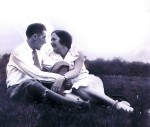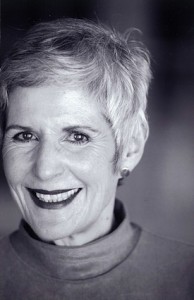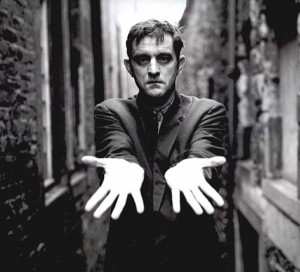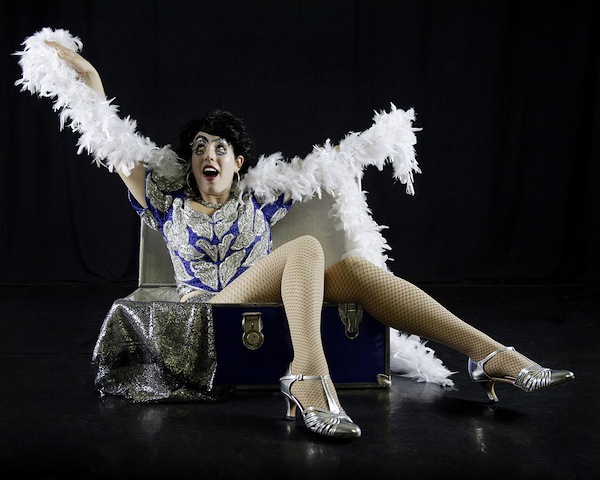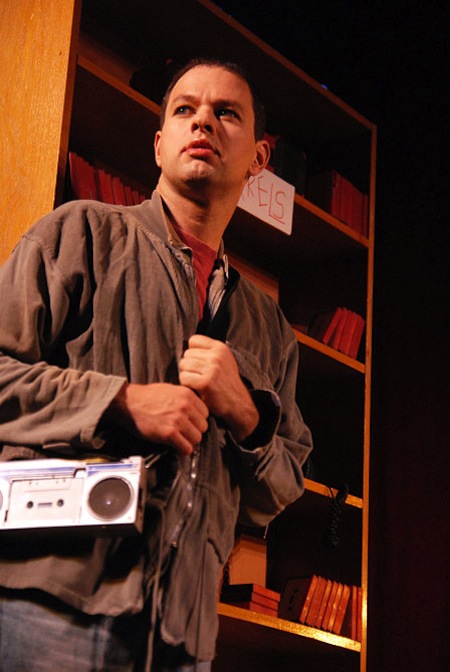Jolene Bernardino is among the cast of Deborah Vogt’s Carry On: A Musical. (photo by Landon Shantz, graphics by Braden Neufeld)
How many hours do you think you’ve stood around baggage carousels waiting for your luggage? Were you able to do something productive with your time? Or was it luggage limbo? Waiting for luggage becomes the backdrop of one of several plays with Jewish connections at the Vancouver Fringe Festival this year.
When Deborah Vogt and her team in Smackdown 2015 (a 24-hour musical theatre competition) picked “YVR Baggage Claim” out of a hat last year, the brainwave was immediate.
“I think that we were all inspired by the limbo of baggage claim: the idea that you’ve finished your flight, you’ve gone through customs and you just want to finish your journey, yet you’re stuck and powerless while waiting for your bags,” she told the Independent.
“As emerging artists, this feels unsettlingly close to home. We’re at different stages of our careers, but all somewhere in between school and working full time as artists. Do we commit, with the hope that eventually what we’re waiting for will come true? Or do we acknowledge that maybe our bags are lost and go home? And, more importantly, how do we stop and breathe and enjoy our surroundings in the meantime?”
Thus, Carry On: A Musical was born, in which the audience gets to examine the type of people we encounter in baggage claim areas; their physical and emotional baggage.
“Each of our characters is dealing with one kind of baggage or another – the fun part is watching how different people cope with what is lost, damaged, deep-seated or brand new.”
While this is intended to be a fun, silly show, it also addresses real conflicts that people live with every day, Vogt said.
“An important theme for us is the idea that there is no ‘right’ way to live life. Everyone has baggage, and that’s OK. Just like in an airport, there are many directions to take. It’s OK to make mistakes or accidentally get on the wrong flight, because that’s all part of the journey.”
* * *
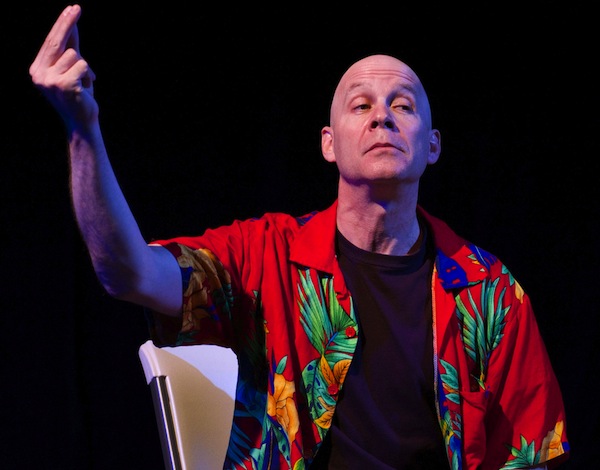
Enjoying the journey is a key message in writer/performer Randy Ross’ The Chronic Single’s Handbook. In it, Ross addresses the issues of relationships, examining why he’s single, whether some people are meant to be single and whether we should always hold out hope for that oxytocin-creating state we call love.
Based on a book that he’s been working on for seven years, called God Bless Cambodia, Ross places his quest amid a world tour where he strikes out with women on several continents but gets lucky (in many different ways) in Cambodia.
The play is not without its controversy. Because of its raw sexual exploration, some critics have called the work “misogynistic,” while others sing its praises. (It’s rated 18+.)
“The narrator’s trying to figure out why he’s still single,” Ross explained. “He tells stories of past relationships that failed. One is a domination scenario/date. Another is with a sex tourist in Cambodia who gives him a tour.”
In the end, you won’t please everyone, he said.
“My mother has seen the show – twice. She just says, ‘Boys will be boys,’ and we’re New York Jews, so this is our sense of humor. If you look at the whole Clinton/Lewinsky investigation, you could call most of the United States hypocrites.”
In the end, one key thing Ross discovers is that being single may be who he is. It’s a story of acceptance.
In the 35- to 54-year-old crowd, he said, one out of seven has never been married, so marriage is no barometer of mental health.
“Where I live in Boston, most of my friends are in their 50s and have never been married. And that number was comparable for women. You have 70 good years in your life, get on with your life.”
At the same time, Ross believes we are actually meant to be in some type of relationship – whether it’s marriage or not – and that everyone should experience the effect of the “cuddle drug.”
* * *
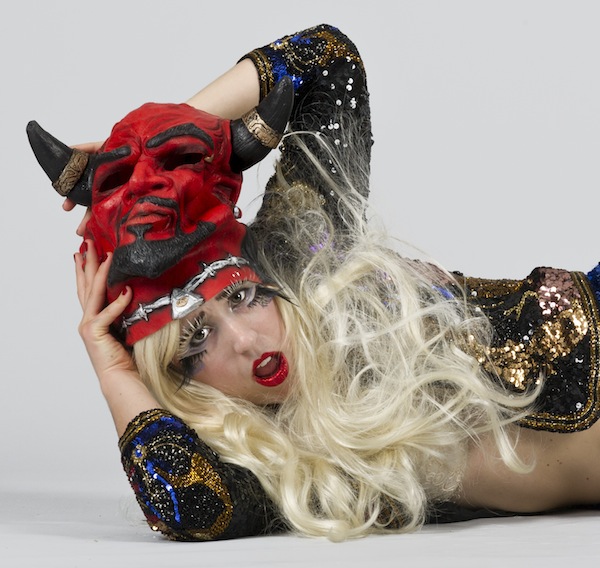
Following from her previous Fringe performance Uncouth, San Francisco–based Windy Wynazz (aka Wendi Gross) is back as co-writer, producer and performer in Rich and Famous, co-written and directed by Deanna Fleysher.
“I’ve built on what Uncouth was last year, but I’ve made it more personal,” said Wynazz. “I make a deal with the devil and undergo a transformation through the play. The theme is similar to making it in showbiz.”
Wynazz said she was interested in exploring what success is at different times of our lives.
“I’ve reevaluated what ‘making it’ looks like,” she told the Independent. “It was even reflected in the intense creation period with Deanna. She prods and provokes to bring out the most juiciest and most enjoyable. But, at one point, she said to me, ‘Well, you didn’t make it, Wendi. How does it make you feel?’ I feel tied up in performing, it’s what I love to do. So, that’s success as well. There’s nothing else I’d rather be doing.”
While Rich and Famous is more linear and verbal, as well as less raunchy, than Uncouth, the audience might still expect some coarse moments, given that Wynazz describes the character as a mix of Carol Burnett, Lucille Ball and Lady Gaga.
“People will be dancing with delight when they leave,” said Wynazz. “The idea is that it’s positive and uplifting.”
* * *
Continuing with the theme of self-discovery, Vancouver’s Theatre Terrific jumps into the mix with The Hidden Stories Project.
Inspiration for the play comes from the poem “We are These” from the book In Honor of Our Grandmothers: Imprints of Cultural Survival, authored by Garry Gottfriedson and Reisa Smiley Schneider, with artwork by George Littlechild and Linda Dayan Frimer.
“With Hidden Stories, we used a Cree medicine wheel,” said artistic director Susanna Uchatius. “Each actor is put in a process determining which direction they are connected to. Whenever you start to build something like this, it’s a bit of chaos and a lot of fog. We walk through everyday life and the face we give to the public is actually our mask. Working through the medicine wheel, identifying our animal spirit … and putting on a mask allow the actors to really express who they are.”
Setting this play apart are a number of features.
First, it’s site-specific, taking place outside near the lagoon on Granville Island – rain or shine.
Second, Theatre Terrific includes actors of all abilities. “We have in our group people with autism, cerebral palsy and Downs syndrome,” Uchatius explained. “We bring people together who would normally not come together and unite as ensemble to speak in a common voice.”
It’s also very accessible for those who are deaf or hard of hearing, as there is a lot of imagery but not as much verbal communication.
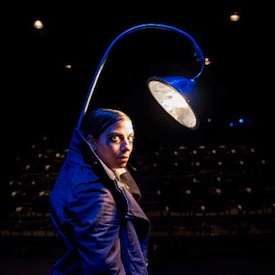
“What they’re doing refers to hope and fear. It’s a lifecycle: you’re born, you eat, you speak, you love, you dance, you die. Many people will be surprised to identify with what they see. We deal with basic issues that matter to everyone.”
* * *
The Fringe Festival runs from Sept. 8-18 on Granville Island. Fleysher opens the festival with a fundraising performance Sept. 6, where she reprises her character Butt Kapinski in Dick on the Fringe. Described as part Phillip Marlowe, part Elmer Fudd, Kapinski is the film-noir-style private eye who helps solve the great Fringe murder mystery (see jewishindependent.ca/butt-kapinski-not-your-childrens-clown). For more information, visit vancouverfringe.com.
Baila Lazarus is a freelance writer and media trainer in Vancouver. Her consulting work can be seen at phase2coaching.com.


